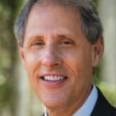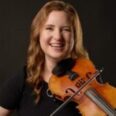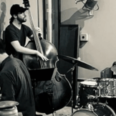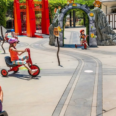
Alan Nakagawa, an interdisciplinary artist, currently in his fourth year as the artist-in-residence at the Pasadena Buddhist Temple will lead a three-day hybrid panel discussion between scholars and community members titled “The Invisible Tea House Lecture Series.”
The lecture series starting Friday, Jan. 13 will take place in person at the Pasadena Buddhist Temple and online through zoom. It focuses on the Invisible Tea House project at the Pasadena Buddhist Temple, a historic community center founded by the post-WWII Japanese American Community.
“In collaboration with Asian American Justice + Innovation Lab (AAJIL) this lecture series is designed to put the Invisible Tea House project in cultural and historical context by documenting first hand and scholarly information about Redlining, inclusion and art intervention,” Alan Nakagawa, Pasadena Buddhist Temple’s artist-in-residence said.
Nakagawa said anyone interested in inter-cultural communities, post WWII Japanese American history, the benefits of art interventions in community institutions or those who want to learn about the history of their neighborhood should attend the lecture series.
“Invisible Tea House (2019 to present) is the Pasadena Buddhist Temple’s ongoing Artist-in-residency with artist Alan Nakagawa through Side Street Projects. This multi-disciplinary and immersive engagement has nurtured a collaborative relationship with Temple members, local artists, and local neighbors,” according to Side Street Projects.
History as Content – Friday, Jan. 13
The series, made possible in part by a grant through the Mike Kelley Foundation, will feature three panel discussions.
The first, which is the History as Content Panel Discussion will take place on Jan. 13 starting at 6:30 p.m.
In this panel discussion, residents will hear stories about the history of the African-American community local to the Pasadena Buddhist Temple and how the neighborhood has developed post “Redlining.”
Guest speakers for the first session are Susie Ling, Professor of Asian American Studies at Pasadena City College and Beverly Dekine, a resident of Pasadena. The discussion will be moderated by writer Naomi Hirahara.
Conflict and Mutuality – Friday, Jan. 20
The Conflict and Mutuality Panel Discussion, with guest speakers Jose Salcedo, Tea Ceremony Instructor at Urasenke School and William Roper, Tuba player and composer will be held on Jan. 20 starting at 6:30 p.m.
In this panel discussion, attendees will learn how the Pasadena Buddhist Community has embraced participation from all and how the community has gauged growth through this open policy.
Building Community Through the Arts – Friday, Jan. 27
The last panel discussion, which is the Building Community Panel Discussion will be held on Jan. 27 starting at 6:30 p.m. It will feature guest speakers Carribean Fragoza, Co-Founder of South El Monte Art Posse, Leslie Ito, Director of the Armory Center for the Arts, and Michael Manalo, AAJIL Poetry Lab.
Nakagawa said learning about the past is important to make communities better. “If we learn about how communities develop, the hardships and success they achieve, we can move forward with a better educated facility in order to make our communities better.”
The residency, which is rooted in Nakagawa’s weekly presence, active listening, responsive programming, and love for uncovering forgotten history, has nurtured a collaborative relationship with Temple members, local artists, and local neighbors.
With 19 projects, Invisible Tea House has become one of the most unique multi-year artist interventions to date, a release said.
To register for the upcoming in-person lecture series or watch through zoom, click the link below:
https://docs.google.com/forms/d/e/1FAIpQLScj2oZswkswjrFspZzVPn23nIygyPSm-ehPSsljZgiPq0n_0A/viewform


















